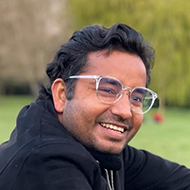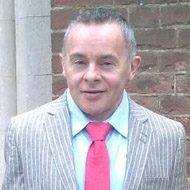Ashish Sharma is an EPSRC funded PhD researcher in the fourth year of his PhD at the Global Centre of Clean Air Research (GCARE) within the University of Surrey’s Department of Civil and Environmental Engineering. He has recently submitted his PhD dissertation titled 'Quantification and mitigation of air pollution exposure to young children'. This project aimed to develop novel exposure control methods for in-pram babies by creating a clean air zone around them. Through laboratory and field investigations for both regulated (e.g. PM2.5, PM10) and unregulated (ultrafine particles) pollutants, he has developed a hitherto missing knowledge base for a low-energy, miniature, clean air system for removing gaseous pollutants and particles of varying size.
Prior to joining the University of Surrey, he worked for five years as an environmental sustainability researcher with some prestigious research groups overseas at GIST (South Korea), the University of Toledo (USA), Macquarie University (Australia) and IIT Delhi (India). He has diverse expertise in air pollution management, including assessment and quantification of exposure and mitigation strategies for young children, and experience in air filtration and facemask filtration efficacy testing. He is also well versed in air quality management techniques such as air pollution dispersion modelling and LCA tools such as Simpro and open LCA and Eco invent databases. He has published several peer-reviewed journal articles and presented his research at international conferences, summits and seminars. An indicative listing of his international presentations includes the United States, Australia, United Kingdom, Egypt and Brazil. His second master's thesis at Macquarie University, titled 'Life cycle environmental and economic impact assessment of alternative transport fuels and power-train technologies', was published in the high impact factor peer-reviewed journal Energy (Impact Factor: 6.08). In 2017, he delivered a talk on sustainable transportation at one of the biggest Smart Cities Conferences held in New Delhi. He also gave a presentation on the quantification of air pollution exposure to in-pram babies and mitigation strategies at the 2019 Cambridge Particle Meeting, hosted by the University of Cambridge's Department of Engineering.
Most recently at the University of Surrey, he has published some very high impact scientific research articles which received wide international media coverage from organisations including the BBC, Telegraph, Daily Mail and Huffington Post. Particularly, his research articles titled 'A review of factors surrounding the air pollution exposure to in-pram babies and mitigation strategies' and 'Quantification of air pollution exposure to in-pram babies and mitigation strategies' had a huge impact and were covered by numerous prestigious media outlets. In the context of COVID-19, he co-authored an article titled 'Temporary reduction in fine particulate matter due to anthropogenic emissions switch-off during COVID-19 lockdown in Indian cities' which received wide media publicity. For this study, he led the economic and health impact evaluation of COVID-19 lockdown-related air quality improvements in Indian mega cities.
Apart from his routine engagements in engineering research projects, he is an enthusiast of entrepreneurship, management and global leadership programmes, and is a graduate of the Global Leadership Programmes at Macquarie University, Australia, and the University of Toledo, USA. Further details about his qualifications, publications and experience within industry and academia are available at his Google Scholar profile and University of Surrey webpage.




